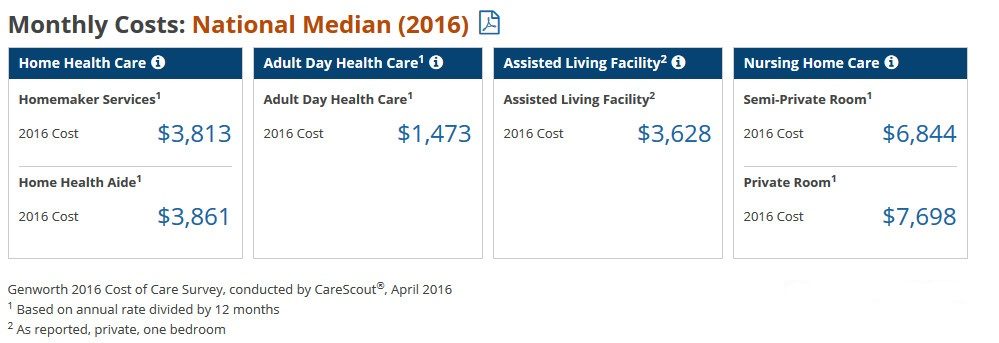
Do you know if Medicare covers long term care? This article will discuss the benefits of long term care insurance, the types and eligibility requirements for Medicaid and Medicare. Find out more about Medicare and your rights. Then choose the coverage that is best for your needs. Your financial and personal circumstances will determine the best type of coverage for you. This article includes information about Medicare, Medicaid, as well as private insurance coverage that provides long-term care.
Cost of long-term care insurance
Traditional long-term insurance is much the same as car or health insurance. The monthly premium you pay is a premium. There may not be a return of your premium. Those benefits are limited and you may be subject to rate increases, making this option less attractive. This option is often considered a gamble since you will not receive any benefits or money back if you don’t require long-term care.
Long-term Care Insurance is a complex policy. Those who purchase it when they are younger and in good health will pay the least. The policy's rates will be lowest for those who buy it in their younger years. They are calculated based on $164,000 of initial benefits at 55. This value will rise to $386,000. However, this is not true for everyone.

Medicare covers certain types long-term services
It doesn't matter if your question is whether you are eligible for longterm care benefits. Medicare covers many services that support your wellbeing and health for a longer period. Long-term healthcare is more comprehensive than short-term medical care that is only provided by doctors and hospitals for several days or weeks. It provides assistance with daily activities and financial management. This care can vary depending on what the client needs.
Long-term care insurance pays for some of these services, such as home health aids and personal care services. These policies are limited and more expensive with age. Some insurance companies consider medical history and health history as criteria for eligibility. One-third of Medicare applications were rejected by older adults in 2019, due to the fact that they are less likely than younger people to be eligible.
Medicaid covers long-term care
You may be curious about whether Medicaid covers long-term care coverage if you are in the market. This program has many benefits, including the ability control the cost and flexibility as well as the freedom to choose the care you want. These are some tips that will help you determine whether Medicaid covers long term care. Consider your specific needs. Your spouse or family members may be able to assist you with basic tasks. While Medicare does not cover long-term care services, Medicaid does.
Medicaid has strict rules on the transfer and ownership of assets to ensure long-term health coverage. The agency looks at five years of financial transactions and determines if transferring an asset will affect eligibility. If there is anything in the applicant's bank account that would prevent them from qualifying for benefits, they cannot receive Medicaid. You should consult an attorney if you have any questions about transferring assets to Medicaid.

Requirements to qualify for coverage
Many people need long-term health insurance, but not everyone can apply. Your health plays a significant role in whether you are eligible for long term care insurance. You can apply for long-term care insurance in your twenties, if you are in good physical health. If you are in poor health, however, you may want to delay applying for long-term care insurance until you are in your fifties or sixties.
For long-term care insurance to be eligible, you must have a disability that renders it impossible for you to perform more than two daily activities per day for at least 90 days. You must also have a significant cognitive impairment that requires substantial supervision. A diagnosis must be made by a licensed medical practitioner. Once approved for longterm care insurance, your premiums will be paid. You will then start receiving benefits. Long-term care insurance policies can cover many different types of facilities. You should know which facilities are covered by your policy, however, because if you do not, your insurance provider may refuse to pay out.